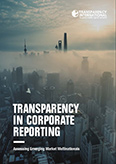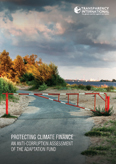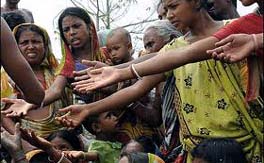Corruption perceptions index 2022
The 2022 Corruption Perceptions Index (CPI) shows that most countries are failing to stop corruption. The CPI ranks 180 countries and territories around the world by their perceived levels of public sector
The 2022 Corruption Perceptions Index (CPI) shows that most countries are failing to stop corruption. The CPI ranks 180 countries and territories around the world by their perceived levels of public sector
India is ranked 85 out of 180 countries on the global Corruption Perceptions Index for 2021, PTI cited Transparency International report. With a score of 40, India stands at 85th position, while its neighbours
The tenth edition of the Global Corruption Barometer (GCB) - Africa, reveals that 64% of South Africans surveyed think corruption increased in the previous 12 months. The survey, released by Transparency
Transparent and accountable mining can contribute to sustainable development. This begins with corruption-free approvals – the very first link in the mining value chain when decisions are made about whether,

This report evaluates the disclosure practices of 100 major emerging market multinationals headquartered in 15 countries and active in 185 countries. The report is part of a series on corporate reporting
2015 showed that people working together can succeed in the battle against corruption. Although corruption is still rife globally, more countries improved their scores in the 2015 edition of Transparency

Protecting Climate Finance: An Anti-Corruption Assessment of the Adaptation Fund is the first in a series of reports by Transparency International aimed at analysing the policies and practices that seven
The Transparency International study Transparency in Corporate Reporting: Assessing Emerging Market Multinationals assesses the corporate reporting practices of 100 large multinational companies from emerging markets. These rapidly expanding companies, identified as rising stars of the world economy, come from 16 different countries.

<p><span id="itro1">This report by Transparency International explores major climate-related corruption risks, sets out practical guidelines and calls on strengthening of governance mechanisms to reduce corruption risk and make climate change policy effective and successful.</span></p>
<p>Oil and gas producers transfer considerable funds to host governments – in the form of license fees, royalties, dividends, taxes and support for local communities. These large financial inflows should contribute substantially to social and economic development, yet many resource-rich countries have been unable to transform resource wealth into wellbeing.